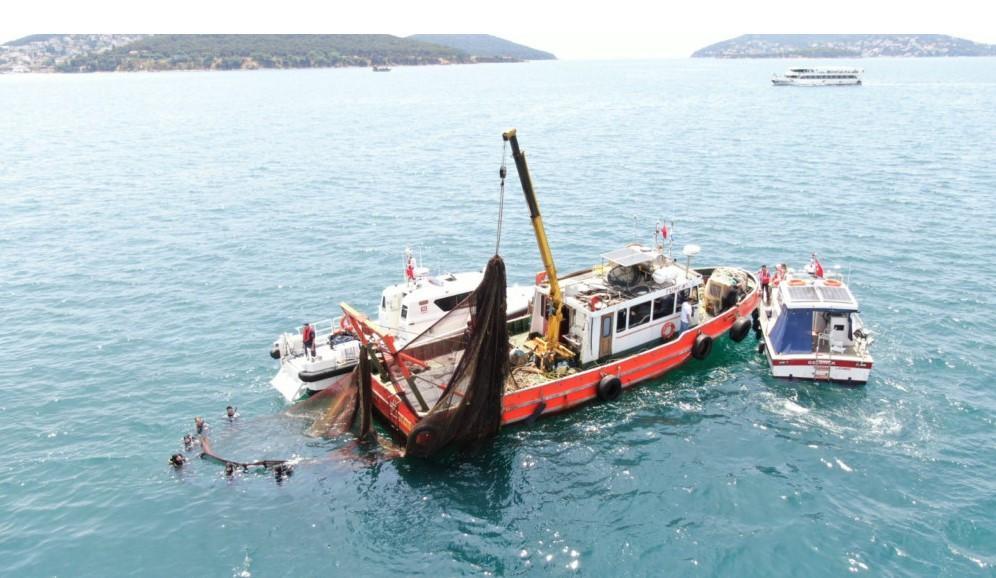
Officials have removed what is believed to be the largest-ever ghost net off the coast of Istanbul’s Maltepe district in the Marmara Sea.
Teams from the Turkish Coast Guard, police, the provincial directorate of agriculture and forestry and Gedik University worked for two days, finally managing to bring 120 meters long, 40 meters wide and 5,000 square meters of ghost net from a 30-meter-depth to the surface.
Officials believe that the net was there for over 10 years.
Within the scope of the project, some 4.7 million square meters of area have been inspected, and 204 ghost nets have been collected from 184 locations since 2011.
Ghost nets are fishing nets either abandoned, lost, or discarded by fishermen, and fish can still get entrapped and entangled in these nets, explained Ahmet Yavuz Karaca from the provincial directorate of agriculture and forestry.
“We do not throw away the ghost nets we collect. We have agreements with two municipalities to recycle them,” Karaca said.
The ghost net removed near the Tuzla district was stuck to a sunken ship at the bottom of the sea, said Güvenç Sorarlı from Gedik University.
He added that they asked fishermen to provide them with the location where they abandoned their fishing nets so that officials could remove them.
These nets can travel long distances from their points of origin and can remain in the seas long after they are discarded, resulting in the entrapment and death of marine mammals, seabirds and fish.
Removing shipwrecks
Meanwhile, the Environment, Urbanization and Climate Change Ministry has launched an initiative to rid Turkey’s seas of shipwrecks and sunken and half-sunken ships.
Hundreds of sunken ships pollute the seas and pose risks for sea traffic, the ministry said, announcing that it issued a communiqué that regulates the removal of those ships, particularly from the Marmara Sea.
The regulation sets rules for the dismantling and removing shipwrecks and sunken and half-sunken ships.
As per the regulation, shipwrecks, which could not be floated or transported to the Aliağa shipbreaking yard, may be dismantled on the site if a report prepared by a university gives the green light to such an operation and the ministry approves it.
The regulation also says that necessary precautions should be taken to prevent pollution before the dismantling begins.